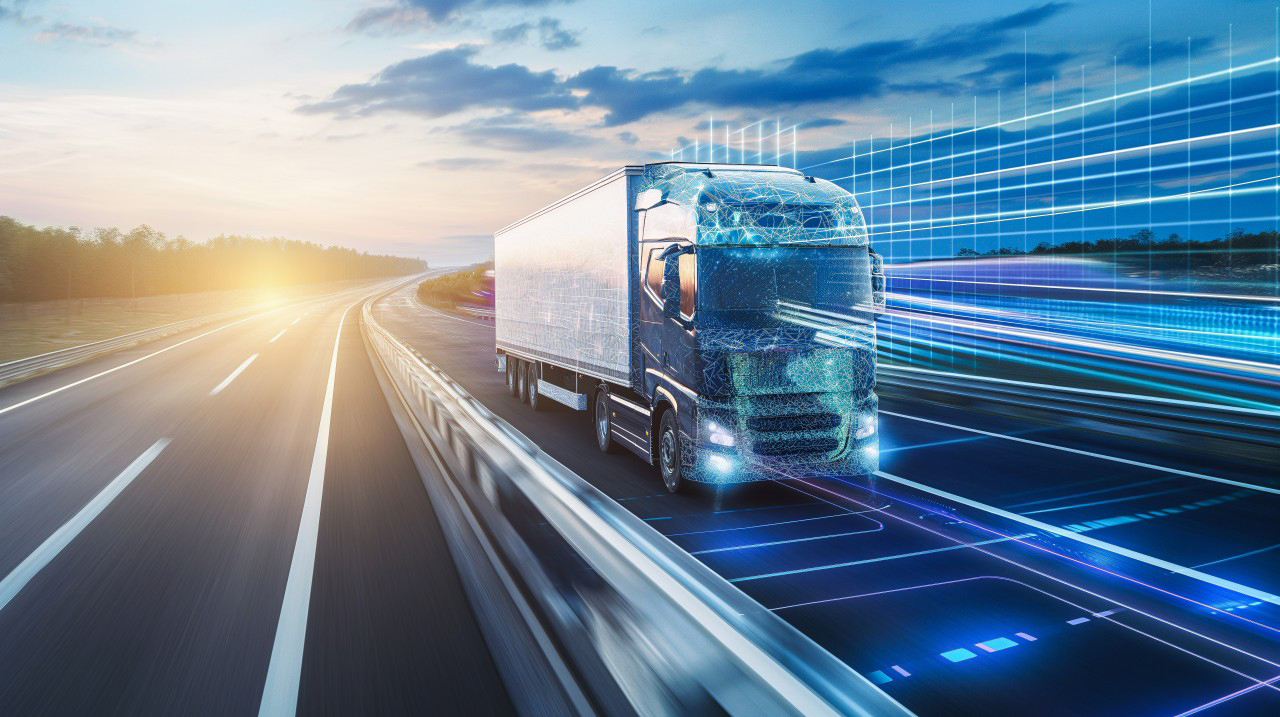
Susie Jones
Umělá inteligence a její dopad na udržitelnost v odvětví nákladní dopravy
Vytvořeno: 29.08.2024
•
Aktualizováno: 29.08.2024
Umělá inteligence (AI) je pojem, který se v posledních letech stal součástí moderního slovníku. Kvůli nedostatečnému porozumění a mylným představám je často vnímán negativně. Navzdory výhradám může AI pozitivně ovlivnit udržitelnost, pracovní procesy i ekonomiku. Vzhledem k tomu, že více než 25 % emisí CO2 produkuje dopravní průmysl, může AI přinést pozitivní změnu pro udržitelnou budoucnost?
Co je umělá inteligence?
Podle Oxford Languages je AI:
"teorie a vývoj počítačových systémů schopných provádět úkoly, které obvykle vyžadují lidskou inteligenci, jako je vizuální vnímání, rozpoznávání řeči, rozhodování a překlad mezi jazyky. "
Udržitelnost v odvětví nákladní dopravy
Odvětví se nachází na kritické křižovatce s rostoucími požadavky a měnícími se typy dodávek - jedním z nejrychleji rostoucích požadavků je nakupování online. Zatímco zvýšená poptávka může být pro odvětví nákladní dopravy přínosem, čelí dilematu v oblasti životního prostředí, které má zásadní dopad na planetu.
Odvětví ovlivňuje životní prostředí následujícími způsoby:
Hlukové znečištění: Nákladní automobily mohou ve velkém počtu přispívat k hlukové zátěži. Hlukové znečištění narušuje městské a venkovské oblasti a často ovlivňuje pohodu obyvatel a volně žijících zvířat. Vystavení vysoké hladině hluku může vést ke stresu a kardiovaskulárním problémům.
Emise uhlíku: Tradiční paliva v nákladních vozidlech uvolňují do atmosféry CO2. Z celkových emisí z celosvětové dopravy pochází 29 % z nákladní dopravy.
Kvalita ovzduší: Obě tyto látky zhoršují kvalitu ovzduší, poškozují životní prostředí a vedou k dýchacím potížím u lidí.
Jak může umělá inteligence zlepšit udržitelnost
Plánování tras: Nevhodné plánování tras může stát vozový park peníze, čas a zdroje. Umělá inteligence dokáže přesně předvídat požadavky a nároky - a doporučit tak nejudržitelnější trasu. Její algoritmy mohou analyzovat dopravní vzorce, povětrnostní podmínky a efektivitu využití paliva a optimalizovat tak trasy doručování. Tento proces šetří peníze a přispívá ke snižování emisí uhlíku.
Předvídání spotřebitelské poptávky: Výrobky jsou často dodávány spotřebiteli, ale nejsou reklamovány, což vede k plýtvání zdroji a značnému dopadu na životní prostředí. Strojové učení a prediktivní analýza AI pomohou výrobcům předvídat poptávku, zefektivnit dodávky a optimalizovat výrobní procesy. Prostřednictvím smysluplných poznatků o dodávkách a neobdržení zboží může AI informovat logistické společnosti o tom, jaké zboží mají odesílat - řešit tak ekologické problémy od samého zdroje.
Monitorování řidiče: Algoritmy umělé inteligence analyzují vzorce chování řidiče, jako je překračování rychlosti, prudké brzdění a volnoběh. Na základě toho může umělá inteligence poskytovat koučování a pobídky k úspornějšímu řízení.
Snížení spotřeby energie: Umělá inteligence může pomoci společnostem s vozovým parkem při řízení spotřeby energie v dodavatelských řetězcích. Může identifikovat neefektivní oblasti a poskytnout optimalizační strategie - včetně analýzy dat z chytrých měřičů, senzorů a dalších zařízení, aby určila, co spotřebovává příliš mnoho energie.
Převezme umělá inteligence vládu nad logistickým průmyslem?
Přestože využití umělé inteligence bude hrát v logistickém průmyslu určitou roli, není pravděpodobné, že by jej zcela ovládla. Algoritmy AI nemohou zohlednit spontánní události a výjimky - proto bude stále hrát zásadní roli zapojení člověka. Kariérní příležitosti v odvětví nákladní dopravy budou stále existovat, ale budou vypadat výrazně jinak.
Jak jinak může průmysl snížit emise uhlíku?
Odvětví může přijmout následující opatření:
Vozidla s nízkými emisemi: Elektrická a hybridní nákladní vozidla mohou snížit emise uhlíku. Obě jsou vhodná pro přepravu na krátké i dlouhé vzdálenosti.
Alternativní paliva: S blížící se nulovou bilancí do roku 2050 se energetická legislativa zaměřuje na čistší alternativy. Hydrogenovaný rostlinný olej (HVO) může okamžitě a výrazně snížit emise. Společnost Certas Energy HVO stojí za přechodem na čistší alternativu - pomáhá podnikům plnit jejich cíle v oblasti udržitelnosti a podnikat smysluplné kroky k jejich čisté nulové budoucnosti. HVO poskytuje následující výhody:
Okamžité snížení emisí skleníkových plynů až o 90 % v porovnání se standardní naftou, a to v průběhu celého životního cyklu výrobku.
Méně oxidů dusíku než u standardní nafty
Méně pevných částic než u standardní nafty
Snadno biologicky odbouratelné
Dlouhá skladovatelnost až 10 let
Prakticky bez FAME
Alternativní nafta - nejsou nutné žádné úpravy motoru ani infrastruktury.
Účinnost vozidla: Efektivitu mohou zvýšit úsporné motory, zkrácení doby volnoběhu a pravidelná údržba.
Chytré balení: Výrobci mohou při přepravě zboží používat biologicky rozložitelné a recyklované materiály, což snižuje množství odpadu a náklady. Lehčí obaly navíc zvýší efektivitu, což vede ke snížení emisí uhlíku.
Obnovitelná energie: Využívání obnovitelných zdrojů energie, jako je solární nebo větrná energie, v provozu může výrazně snížit emise uhlíku.
Snížení počtu objížděk: Účet SNAP umožňuje správcům vozových parků snížit počet objížděk - s více než 600 servisními partnery, kteří jsou zákazníkům účtu SNAP k dispozici, se na vaší trase určitě najde zastávka.


